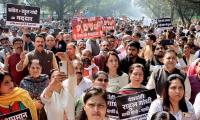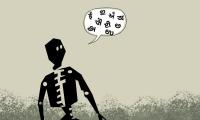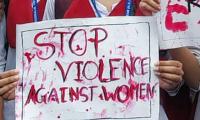It has been a virtual procession of the nation's leaders, Bollywood stars, top industrialists and all and sundry making a trip to Hinduja Hospital where high-profile Bharatiya Janata Party leader Pramod Mahajan is battling for his life.
Known for his networking across the political spectrum, it is not surprising that Mahajan enjoys tremendous goodwill and that there has been a constant stream of visitors to meet his family and convey good wishes for his recovery.
With television cameras beaming live pictures across the country, it has become almost obligatory for visiting VVIPs to pose for national audience and some have even turned instant doctors updating the media on Mahajan's health, even if that has been at variance with what the doctors say.
Bollywood stars and the political biggies have attracted large crowds causing near chaos in front of the hospital.
Police have had a tough time handling the crowds and clearing the way for the VIPs and hapless visitors to other patients in the hospital.
Doctors have issued medical bulletins on the BJP general secretary's health, but many a leader have chosen to do their own medical briefing.
BJP spokesman Prakash Javadekar has parked himself at the hospital to deal with the media and has sometimes conducted even the doctor's briefing.
Vice-President Bhairon Singh Shekhawat, Atal Bihari Vajpayee, Lal Kishenchand Advani, Rajnath Singh, Jaswant Singh, Arun Jaitley, Amar Singh, Bal Thackeray, Sharad Pawar, Maharashtra Governor S M Krishna, Chief Minister Vilasrao Deshmukh, chief ministers of BJP-ruled states and others political bigwigs have been among the VVIP visitors.
Film and television stars including Amitabh Bachchan, Shabana Azmi and her lyricist husband Javed Akhtar, Dharmendra, Hema Malini, Smriti Irani and industrialists Mukesh and Anil Ambani have all been there.
Mahajan, of course, is unable to receive the visitors who meet members of the distraught family to convey their good wishes.
But medical experts take a dim view of VVIP parades in such situations. Such visits are "uncalled for" as they put pressure on the relatives and close friends who have to answer queries throughout the day despite being physically and mentally tired, says Prof P K Dave, former director of the All India Institute of Medical Sciences.
"These people should visit when the patient is recovering not when he is critical. No purpose is achieved by talking to the family members who are already tense and would like to spend time quitely in prayers," says Dr Ashok Seth, noted cardiologist and chairman of the Max Devki Devi Hospital in Delhi.
"The doctors also become too cautious when every step you take in a routine manner is in the limelight. This is not very good for the patient," he says.
However, well-known sociologist Prof M N Panini of Jawaharlal Nehru University finds nothing wrong in such visits. "It is a social custom in India to visit people during illness. It is the media which should introspect over the manner they are trying to highlight it."
Recalling how even the sprawling AIIMS was "paralysed" for two days following the then prime minister Indira Gandhi's death, Dave says, "Of course, it was a different situation. But the doctors will have to firmly and politely tell the VIPs not to come."
"Only relatives and close friends should be allowed. Visit by others should be restricted. Information should be made available on phone and it should be the family's prerogative whom they want to see. Such visits affect the whole system. The security of every VIP needs to be looked into and we have to live up to their happiness," says Dr Seth adding, "let the VVIPs put themselves in the shoes of relatives and think how they would react to such influx of visitors."
"The visits cause tremendous inconvenience to both the patients and the hospital. The sancitity of the hospital has to be maintained. The patient alone is the VIP and all other systems should be geared exclusively to bring him back to normalcy," says Prof Dave.
Both Dave and Seth suggest there should be separate entry points for VIPs and they should "say it with flowers" as in the West and not troop into the hospital in hordes.
"Here, it appears everyone wants to jump onto the bandwagon and don't want to be left behind," Seth said.








